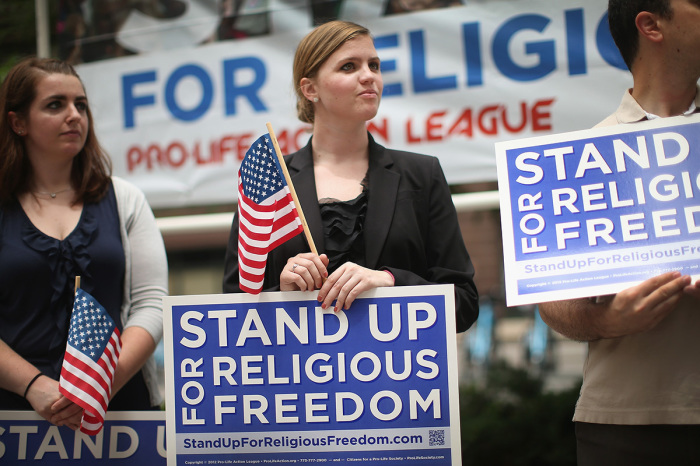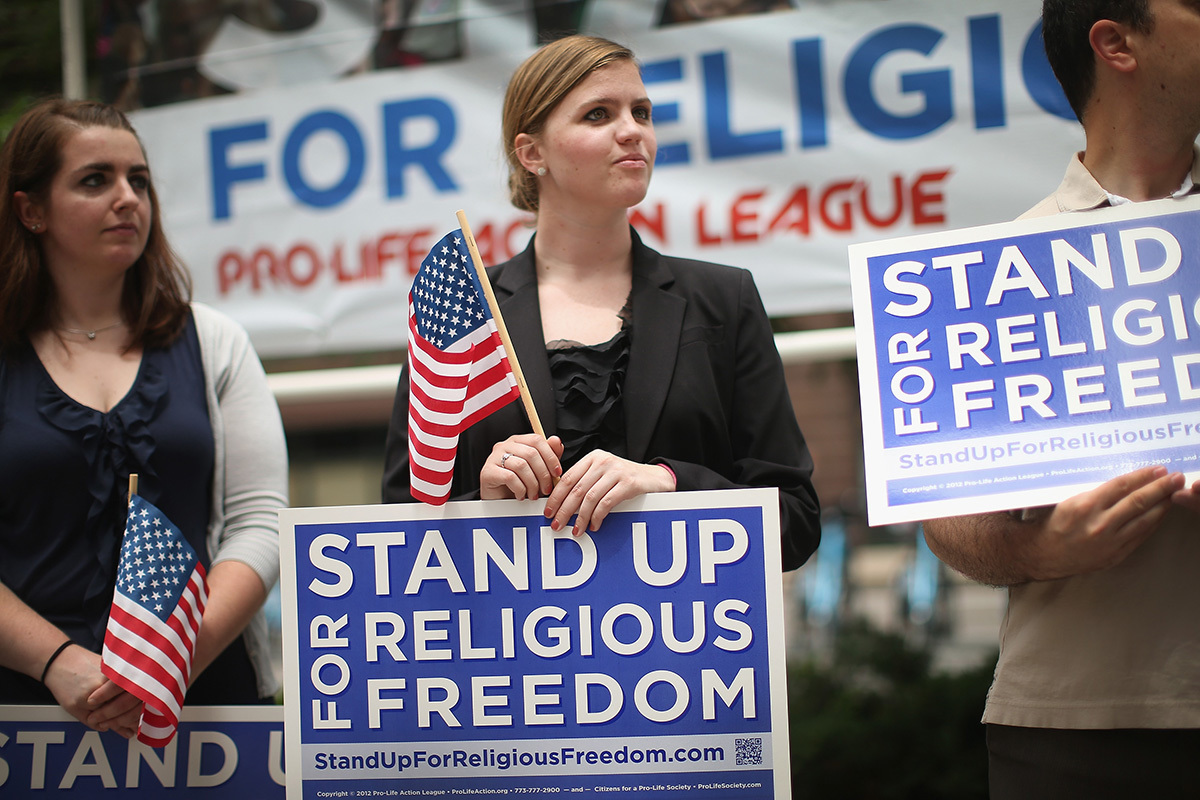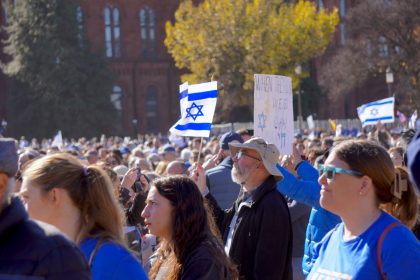
Georgia enacted its version of the Religious Freedom Restoration Act into law on Friday, becoming the 30th state to pass similar legislation.
Georgia’s Republican Gov. Brian Kemp signed Senate Bill 36, also known as the Georgia Religious Freedom Restoration Act, into law after it passed in the Republican-controlled Georgia Senate in a 32-23 vote on March 4 and cleared the Republican-controlled Georgia House of Representatives in a 96-70 vote Wednesday.
The vote fell perfectly along party lines in the Georgia Senate, with all votes in favor of the legislation coming from Republicans and Democrats casting all votes against. In the House, one Democrat joined Republicans in supporting the bill, while two Republicans joined Democrats in opposition.
The Georgia Religious Freedom Restoration Act declares, “Government shall not substantially burden a person’s exercise of religion even if the burden results from a rule of general applicability.” The government may “substantially burden a person’s exercise of religion only if it demonstrates that application of the burden to the person is” either “in furtherance of a compelling governmental interest” or “the least restrictive means of furthering such compelling governmental interest.”
The measure also allows a person whose religious freedom has been violated the opportunity to seek legal recourse. It states that “‘Exercise of religion’ means any exercise of religion, whether or not compelled by, or central to, a system of religious belief, including, but not limited to, the practice or observance of religion under Paragraphs III and IV of Section I, Article I of the Constitution of this state or the Free Exercise Clause of the First Amendment to the Constitution of the United States.”
Entities prohibited under the bill from burdening a person’s “exercise of religion” include “any branch, department, agency, instrumentality, and official or other person acting under color of law of this state, or any political subdivision of this state.”
In a statement published Friday, the conservative religious freedom organization Alliance Defending Freedom cheered the passage of the Georgia Religious Freedom Restoration Act as a victory in the effort to uphold conscience rights.
“Our laws should protect the freedom of every person to live and worship according to their faith. This law provides a sensible balancing test for courts to use when reviewing government policies that infringe upon the religious freedom rights of Georgians,” ADF Senior Counsel Greg Chafuen said.
“The law, which is similar to laws in 29 other states, doesn’t determine who will win every disagreement, but it does ensure that every person — regardless of their religious creed or political power — receives a fair hearing when government action burdens a person’s freedom to live out his or her religious beliefs,” he added.
The other 29 states with Religious Freedom Restoration Acts in place at the state level are Alabama, Arizona, Arkansas, Connecticut, Florida, Idaho, Illinois, Indiana, Iowa, Kansas, Kentucky, Louisiana, Mississippi, Missouri, Montana, Nebraska, New Mexico, North Dakota, Oklahoma, Pennsylvania, Rhode Island, South Carolina, South Dakota, Tennessee, Texas, Utah, Virginia, West Virginia and Wyoming.
Ryan Foley is a reporter for The Christian Post. He can be reached at: ryan.foley@christianpost.com








